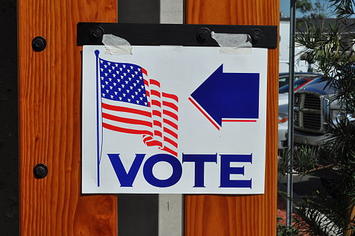
Almost everyone agrees that we just finished the most painful election season in anyone’s living memory, an agony made worse by the fact that it was nearly two years long. Fortunately, we aren’t doomed to repeat it, as we know many other countries have shorter and more civil election campaigns. Three changes to our method of electing presidents could reduce costs, save time, and make the process less divisive and more welcoming to voters.
First, we should replace individual state primaries with a national primary in June. Individual primaries not only stretch out the election season and give a few states an inordinate say in the nominations, they also promote divisiveness because they force presidential candidates to concentrate on local issues that are outside the scope of the office of the president.
Second, we should abolish the electoral college. Hillary Clinton won at least 200,000 more votes than Donald Trump, the second election in sixteen years where the winner of the popular vote didn’t win the election. Trump himself once wrote that “the electoral college is a disaster for democracy.”
The traditional argument for the electoral college is that it encourages candidates to campaign throughout the country instead of one region and to pay attention to the small states as well as the large. In fact, it does exactly the opposite, leading candidates to focus on a handful of large battleground states that tend to flip between red and blue.
This suppresses voter participation because people in other states know their votes won’t count, at least in the presidential race, which for many is the draw that brings them into the polling booth. Less than 56 percent of eligible voters cast ballots on Tuesday, and while some didn’t vote because they didn’t like the candidates, others abstained because they realized their vote wouldn’t affect the outcome in their particular state.
A close look at the Washington Post‘s election map reveals that the real geographic divide is not between east and west, north and south, or big states and little states, but between urban and rural. Clinton won blocks of states on the West Coast and in the Northeast because those states are heavily urbanized, not because they have any common regional interest. The county map shows that major cities in red states such as Texas and Utah went for Clinton while rural areas in California and New York went for Trump. A strong correlation between the urban/rural split and Trump’s margin of victory/loss reveals that the degree of urbanization accounts for more than half of any state’s electoral result.
Residents of New York City have more in common with people in San Francisco than they do with those in Plattsburgh, while residents of Portland have more in common with people in Austin than they do with those in Roseburg. In short, the electoral college fails to account for the geographic factors that are truly important. Eliminating the college would force candidates to appeal to a wider range of voters, thus stimulating voter participation and reducing alienation.
The third change is to have a runoff if neither candidate gets a majority of the votes. A low-cost way to do this is through an instant runoff, where voters rank their choices. The candidate winning the fewest votes is eliminated and a winner is decided from amongst the rest of the votes. Whether a ranked vote or a separate election, a runoff could give third-party candidates more of a chance, especially if applied to state and local offices, because voters wouldn’t feel they are “wasting their votes” when they vote for a third party.
These proposals might not have changed the winner of Tuesday’s election; Donald Trump clearly tapped into voter anger that many other people missed. On the other hand, if these changes were already in place, that anger might not have existed. Candidates would run very different campaigns: we’d have a shorter, less-costly election season; greater voter confidence that the system isn’t “rigged” by the electoral college; and more opportunities for people to express support for third party candidates.
While there may be other good ways of fixing our election process, if we do nothing the best we can hope for is that the next election won’t be quite as bad as this one. That’s not a very happy thought, especially since, under the current system, the next presidential election campaign will begin in two years and the next congressional campaign will begin in two months.
Randal O’Toole is a senior fellow with the Cato Institute specializing in land use and transportation policy. He has written several books demonstrating the futility of government planning. Prior to working for Cato, he taught environmental economics at Yale, UC Berkeley, and Utah State University.
Photo by: By Tom Arthur from Orange, CA, United States (vote for better tape) [CC BY-SA 2.0], via Wikimedia Commons













A longtime op-ed writer wants the Electoral College gone too
Baltimore Sun: Time to ditch the Electoral College?
Nevertheless, widespread public doubts about Mr. Trump's ability to govern, and particularly about his early transition choices for high-ranking positions in his administration, may well give some impetus to eventually getting rid of the Electoral College. It was created to satisfy small states that feared they would have little voice in the decision. But it is an outmoded denial of the revered American concept that every eligible citizen's vote counts.
Of the last five elections, twice the popular-vote winners have lost the Electoral College vote. Of 57 other presidential elections, that has happened only three other times.